commentary Commentary
Commentary: Trump may be conceding but his scorched-earth antics are deeply troubling
Trump’s actions leave several anxieties remaining about the future of US politics and the country’s democracy, say James Carouso and Dr Prashanth Parameswaran.
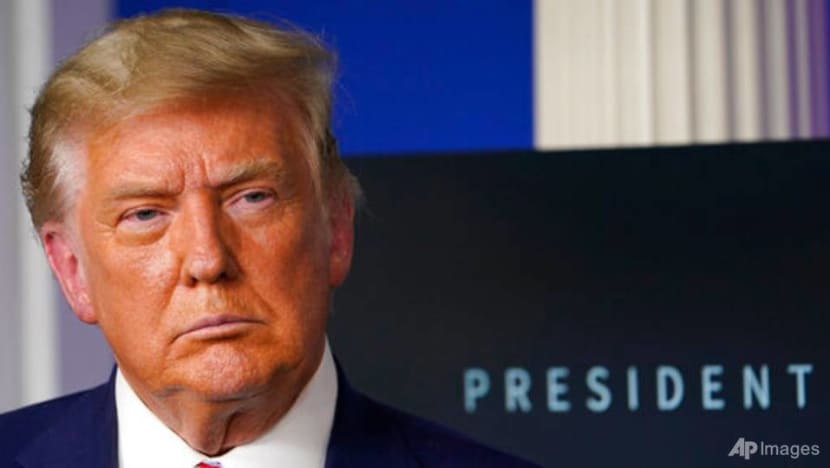
Trump Social Media
SINGAPORE: On Monday (Nov 23), the federal government belatedly recognised President-elect Joe Biden as the winner of the Nov 3 elections, formally kicking-off the transition of power after weeks where President Donald Trump was unwilling to concede defeat.
Though the outcome reinforces the futility of Trump’s post-election antics, it does not detract from the broader questions that remain for the transition, for the Biden administration, and for US politics and democracy more generally.
Since Biden formally declared victory on Nov 7, there had been heightened anxiety over whether Trump would concede defeat, despite the fact that Biden won as many electoral college seats as Trump did in 2016.
Since then, Trump and his team used a range of tactics, including legal challenges and pressuring Republican lawmakers and politicians across the country, in a vain effort to disqualify hundreds of thousands of ballots across multiple states.
READ: Commentary: How Joe Biden won the 2020 US presidential election
READ: Commentary: Why some Trump campaign lawyers are backpedalling on electoral fraud claims
The green-lighting of the Trump-Biden transition by the General Services Administration (GSA) on Nov 23 finally offers some temporary reprieve amid this period of anxiety.
Even though the Biden team is filled with experienced hands who had been in the White House just four years ago, the lack of an official green light - apart from leaving an unprecedented level of doubt over the transition - had left the transition team unable to secure funds, get access to agency officials, receive high-level intelligence briefings and get background checks for cabinet nominees.
IT AIN’T OVER
Yet at the same time, seen from a broader perspective, the GSA’s decision only offers a brief respite from the broader challenge.
Though the outcome reinforces the futility of Trump’s post-election antics, it leaves several anxieties remaining about the shape of the transition, the trajectory of the Biden administration and the future of US politics and the country’s democracy.
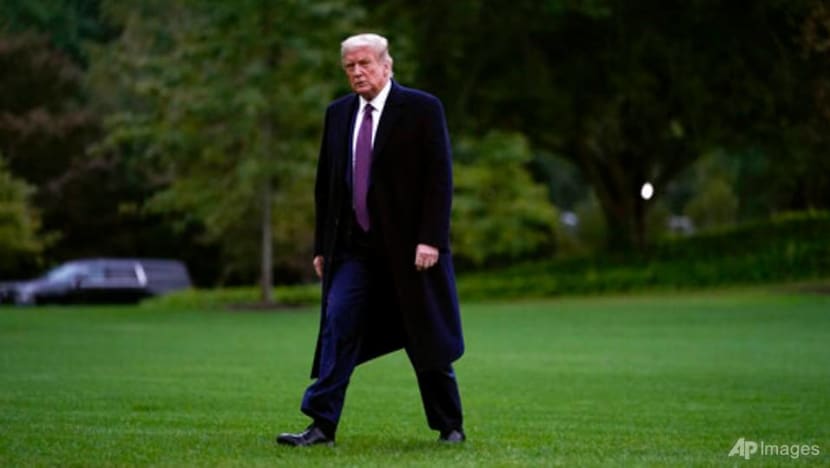
First, Trump technically still has time to affect the shape of the transition out to inauguration day on Jan 20.
While Trump’s team has already failed to delay vote certification in key battleground states such as Michigan and Georgia, the US’ tradition of a long post-election period means that there is still some runway for Trump to interfere in the transition process along the way, including the meeting of the Electoral College on Dec 14 and the counting of electors’ ballots on Jan 6 in Congress.
To be sure, as it stands, it would take nothing short of a full-scale revolt by electors and a large disruption of the Electoral College meeting to keep Biden from the presidency on Jan 20.
But Trump can easily whip up claims of a rigged election to generate large-scale protests to paralyse the process, including from his Twitter megaphone which has over 88 million followers.
READ: Commentary: Donald Trump and how not to leave high office graciously
He also knows he has a hold on most of his Republican Party colleagues who are unwilling to cross him before the outcome of two runoff elections on Jan 5 that could hand them Senate control.
INFLUENCING FUTURE OUTCOMES
Second, Trump can also make decisions that are meant to cement his own legacy and significantly impact the trajectory of a Biden presidency.
Domestically, Trump’s lack of engagement on a new stimulus bill so far, along with the expiration of sources of support for Americans at the end of the year such as unemployment insurance and eviction moratoriums, could further undermine the US economy and exacerbate the impact of the COVID-19 pandemic, both of which already threaten to weigh a Biden administration down during its term in office.
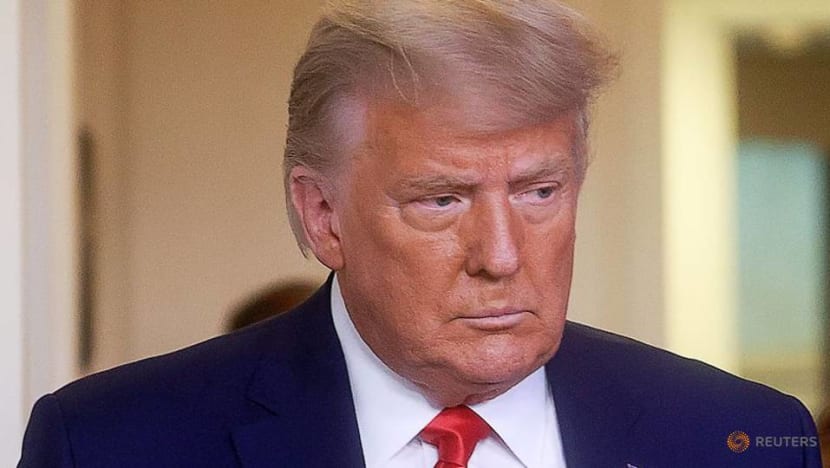
On foreign policy, speculation about Trump’s potential decision to halve troops in Afghanistan by mid-January – despite rising violence and lingering concerns about the Taliban’s ties to Al-Qaeda – would essentially leave a vacuum for a future terrorist safe haven that has the makings of the next 9/11.
Those close to Trump’s orbit have also signalled that the president could look to unveil a series of decisions in the coming weeks to ratchet up tensions with China, leaving an incoming Biden administration to manage the consequences as it enters office.
DEMOCRACY AT STAKE
Third, Trump’s post-election antics also cast a shadow on the future of US politics and the country’s democracy.
READ: Commentary: It’s engagement not containment of China that Joe Biden will focus on
Even though Trump may have failed to overturn the election outcome in his favour, he has already succeeded in sowing sufficient doubt in enough people – including many of the 73 million voters who supported him in the election – about the US electoral process and the country’s institutions.
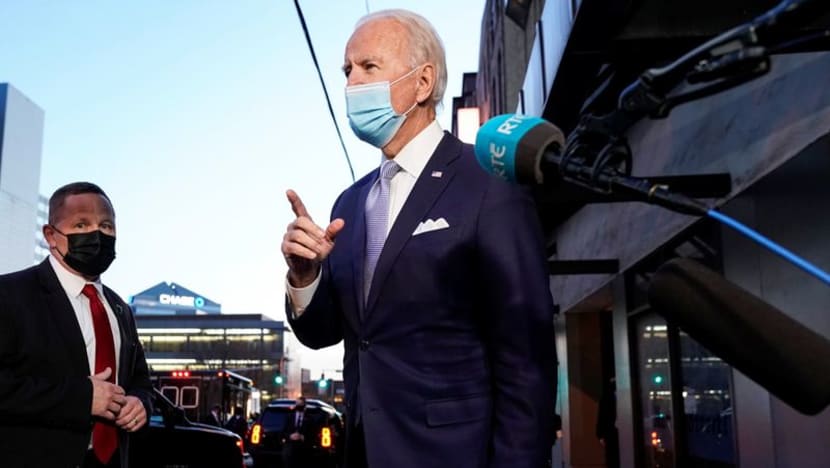
That doubt is also precisely what intelligence officials say adversaries look to generate in their foreign interference campaigns targeting US elections.
The impact on the health of US politics and democracy are not merely a hypothetical proposition or a talking point.
In one recent troubling Reuters poll, 28 per cent of Americans said they believed that the election was rigged, which is up from 16 per cent just four years ago.
The hold that Trump and his ideology of Trumpism has on the Republican Party also heightens the risk that his tendencies may live on with potential candidates for a run in 2022 or a presidential bid in 2024.
In our experience around the world, a key difference between durable and shaky democracies is that the losers in elections do not have to worry about losing their wealth or freedom for backing the wrong party and that they can have confidence that in only four years, they will have an equal opportunity to regain power.
READ: Commentary: How Trump uses Twitter to distract the media
If immediate power becomes the only goal and all means can be used to attain and keep it, the system as a whole becomes unstable and unfocused on the needs of the nation.
WHY THESE MATTER
However, while we should not underestimate how much Trump’s post-election antics matter, we should not overestimate them either.
All said and done, the large margins by which Biden won in key states makes the overturning of the outcome at any stage unlikely.
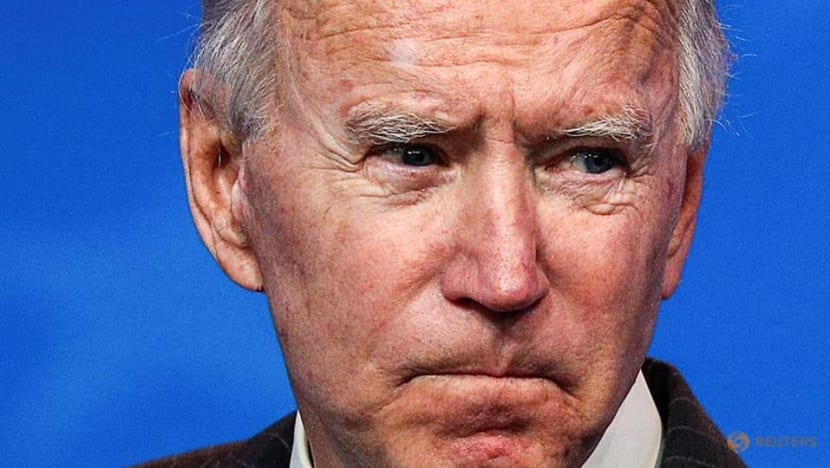
And as we get closer to the noon of Jan 20 when Biden is inaugurated, Trump’s ability to shape outcomes will grow more limited, especially following the two runoff elections in Georgia on Jan 5.
But narrowly focusing on the futility of Trump’s actions also misses the larger point.
READ: Commentary: Biden needs to build bridges, literally, in the US
No sitting US president to date has gone so far to pressure the political system to disenfranchise large swathes of voters and overturn the will of American voters.
The chilling reality is that if it were not for the sheer margins of Biden’s wins in a few key battleground states, Trump may have succeeded in actually getting away with his gambit.
That alone should give pause for those looking to dismiss the significance of Trump’s post-election antics but it should also focus responsible lawmakers on preventing a repeat of this in future US elections to come.
James Carouso, a former US diplomat, is Managing Director of BowerGroupAsia, Singapore. Dr Prashanth Parameswaran is a Director with BowerGroupAsia, US and a widely recognised expert on Asian affairs and US policy in the region.
















